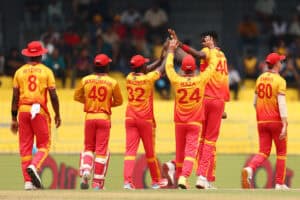As Zimbabweans head to the polls, diaspora voting remains complex, raising questions about political will and election outcomes.

As Zimbabweans head to the polls today to choose the country’s next president, the inability to exercise diaspora voting is still a complex issue for many.
Also known as absentee voting, out-of-the-country voting, external or extended voting – it is the ability of persons who are outside their home country to exercise their right to vote.
Historian and political economist Anotida Chikumbu previously stated across news platforms that one of the reasons for the Zimbabwean government’s failure to implement the diaspora vote was there being no political will to push for more widespread implementation “because of the uncertainty about the number of Zimbabwean emigrants and their political preferences”.
He said the promise of implementing the diaspora vote was mere political grandstanding.
Thando Nkiwane (not a real name) said there was no system allowing Zimbabweans to vote when out of the country.
According to Nkiwane, there’s no system for people who had been displaced, especially due to financial reasons.
“We cannot go home just to go and vote. It is very difficult for most people,” he said.
“I think if we were able to do that, then most Zimbabweans would have managed to go and vote. Also most of the Zimbabweans in South Africa are not documented.
“So, if you go back (to vote) and you want to come back, it will be a costly exercise.”
While 11 candidates are vying for the top position, a total of 6.5 million people – out of an estimated 15.5 million population – are registered to vote at 12 340 polling stations.
This is the ninth election since independence in 1980. The race was mainly seen as a second go between the 45-year-old opposition leader, Nelson Chamisa, and incumbent president Emmerson Mnangagwa, 80, who defeated Chamisa in the 2018.
Mnangagwa took over power from Robert Mugabe, Zimbabwe’s first president, after a November 2017 coup and is the leader of the ruling Zanu-PF.
Chamisa led the Citizens Coalition for Change (CCC) since it was formed in January last year after a split from the Movement for Democratic Change – Alliance, previously the leading opposition party.
With the state of the country’s economy possibly the core concern for voters, Nkiwane said the history of elections in Zimbabwe was marred by rigging and violence from Zanu-PF, which “swears to continue to rule, by hook or crook”.
He said this was very discouraging to voters as it made them feel their efforts would be in vain.
“The division of the country on tribal grounds makes people of the Ndebele tribe feel as if they are not part of the political discourse, hence their reluctance to go and vote,” Nkiwane said Zimbabwe continues to encounter significant economic challenges, including a high unemployment rate and hyperinflation.
Corruption has also impacted public trust in the government. Nkiwane said many people have reached breaking point and placed a lot of effort in this election.
“This is owing to the motivation of the recent Zambian election results. People feel they should give democracy one final try,” he said.
Saying nothing has been done to “conscientiously teach Zimbabweans” about what voting in numbers can do, he added: “I’m interested but I can’t go back right now. I have set my sights for 2028. I believe rigging will be the order of the day.”
A Zimbabwean who requested anonymity said she would not go back home to vote because she felt it would not make much of a difference.
Support Local Journalism
Add The Citizen as a Preferred Source on Google and follow us on Google News to see more of our trusted reporting in Google News and Top Stories.






